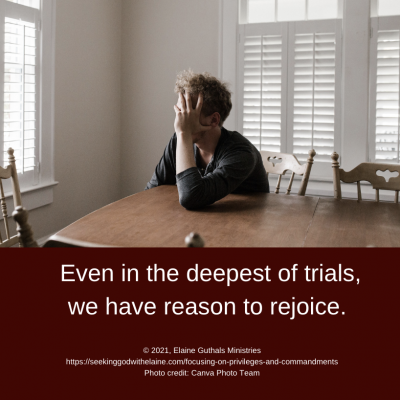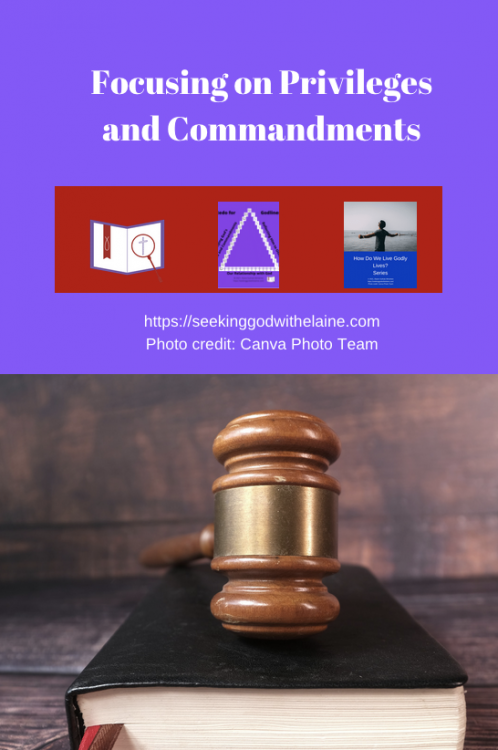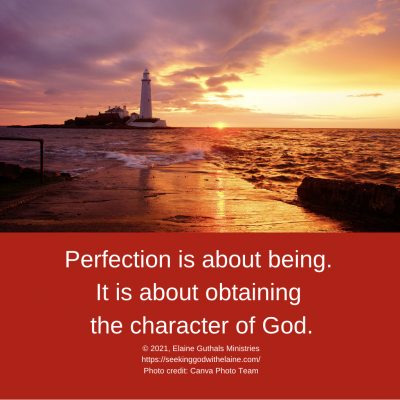Paul told us about three privileges and commandments on which to focus. This daily devotional looks at rejoicing, praying, and being thankful.
Nuggets
- We have reason to rejoice when we ABCD — and every day after that.
- Constant communication with God through prayer is essential for our lives as disciples.
- We are to be thankful to God regardless of the circumstances.
To read devotions in the Redo for Godliness series, click the appropriate button below.
Devotions in the How Do We Live Godly Lives? series

We are looking at the last section of Charnock’s sermon. We’ve continued the discussion on focusing on the good thoughts.
When I thought about what verses I wanted to use on the topic of improving our thoughts, I Thessalonians 5: 16-18 seemed like it was a good summary of what we should do. It is a privilege to do them — but it is also a commandment.
“A fourth sort of directions is concerning good motions; whether they spring naturally from a gracious principle, or are peculiarly breathed in by the Spirit. There are ordinary bubblings of grace in a renewed mind, as there are of sins in an unregenerate heart; for grace is as active a principle as any, because it is a participation of the Divine nature. But there are other thoughts darted in beyond the ordinary strain of thinking, which, like the beams of the sun, evidence both themselves and their original. And as concerning these motions joined together, take these directions in short” (Charnock, The Sinfulness and Cure of Thoughts)
Let's Put It into Context
We’ve been looking at Charnock’s sermon entitled The Sinfulness and Cure of Thoughts to show us how to cleanse, a.k.a. sanctify, our thought processes. Charnock has taught us
- that we cleanse our thoughts when we return to having a strong relationship with God. We can do that by studying the Scriptures, meditating on God, contemplating on His creation, and praising Him.
- that we focus our thoughts by being humble instead of prideful, following God instead of the worldview, working instead of being idle, and laboring for Him.
- that we overcome our evil thoughts by burying ourselves in Scripture, relying on His omniscience and judgment, guarding our hearts and lips, evaluating ourselves, and recognizing evil thoughts, especially hating sin and resisting Satan. We do this by watching and praying.
- that we focus our thoughts on good morals and keeping God’s laws and commandments.
Resource
Glossary
Here is a running list of what we’ve discussed previously.
“Improve them for those ends to which they naturally tend. It is not enough to give them a bare reception, and forbear the smothering of them; but we must consider what affections are proper to be raised by them, either in the search of some truth, or performance of some duty” (Charnock, The Sinfulness and Cure of Thoughts)
A Privilege and Commandment to Rejoice
“Rejoice always” (I Thess. 5: 16 CSB)
We have reason to rejoice when we ABCD — and every day after that.
Horton told us what privileges we gain when we ABCD. Our sins are forgiven when we ask Jesus to be our Lord and Savior. This makes us children of God.
Glossary
What we haven’t begun to fathom then is Jesus’ love for us and the hope that we have. Hope is the expectation, also called a living hope, based on the confidence that, because of our relationship with God, our names will be found in the book of life.
Resource
As much of a privilege to be able to rejoice, it is also a commandment. We are told to not be sticks in the mud.
This tells me that it is our choice to rejoice. Even in the deepest trials, we have reason to rejoice. We are not alone. God never leaves us.

Worldview people like to focus on the repent side of things. Repentance is acknowledging our separation from God and expressing sorrow for breaking God’s laws and commandments by making the commitment to changing ourselves through obedience so that we no longer do the wrong things. Satan wants us to focus on what we are giving up.
If we focus on the rejoicing side of things, we focus on what we gain after conversion. That is so much more than what we have chosen to give up.
Barrett reminded us that there are worldview people who have a cheerful disposition. But I think rejoicing is more deep-rooted than that.
Resource
To me, cheerful is the outward expression of being happy. That is dependent on circumstances.
Rejoicing ties in to being thankful. We can rejoice regardless of circumstances.
I think we have trouble in rejoicing in the trials because we, too, see rejoicing tied with our happiness. It has no ties with the worldview ways of showing our happiness.
It isn’t. We should rejoice because Sovereign God Who is all-knowing, all-seeing, and ever present is in control of what is happening to us. Our rejoicing has to come from God.
Spurgeon addressed that. He wrote, “If our rejoicing does not come out of a clear understanding of the things of God, and has no truth at the bottom of it, what can it profit us? Those who rejoice without knowing why are driven to despair without knowing why, and are likely to be found in a lunatic asylum ere long. Christ’s religion is sanctified common sense.”
Resource
Spurgeon listed the benefits of rejoicing. It brings the spiritual graces of faith, hope, love, and patience. The results of our continual rejoicing, praying, and thanksgiving are singing, communion, and working for God.
Resource
We should rejoice in every aspect of the gospel. All the doctrines and promises lead us to God, the most important thing in our lives.
A Privilege and Commandment to Pray
“pray constantly” (I Thess. 5: 17 CSB)
Constant communication with God through prayer is essential for our lives as disciples.
It is very important that disciples have a consistent prayer life. More important, though, Griffith wrote, “Prayer consists not in those acts, but in the spirit and temper of devoutness, generated, exercised, kept up under difficulty by those acts.”
Resource
We initiate the prayers, but it isn’t just that we pray. We have to mean the prayers and be submissive to God when we pray.
Smith and Spurgeon tied rejoicing with praying. The best time to communicate with God is when we are rejoicing. That contact brings the joy.
Resource
Smith also tied our prayers with incense. Our prayers should be a sweet aroma to God.
- “Let my prayer be counted as incense before you, and the lifting up of my hands as the evening sacrifice!” (Ps. 141: 2 ESV)
- “And walk in love, as Christ loved us and gave himself up for us, a fragrant offering and sacrifice to God” (Eph. 5: 2 ESV).
- “For we are the aroma of Christ to God among those who are being saved and among those who are perishing” (II Cor. 2: 15 ESV).
In the Old Testament, God relied on visuals to show his connection with us and His provision of strength to us. Smith used Samson as an example of giving us His strength. Circumcision is also an outward expression of Israel’s agreement with God’s covenant.
In the New Testament, God relies on prayer. Smith wrote, “Many have learned more by praying than they could by reading, and done that by prayer they could not do by Counsel; therefore one saith that he who can pray continually can do all things and always, because, like Jacob, he can overcome God, who helpeth him; and he who can overcome God can overcome Satan too, who trieth his uttermost to hinder all things.”
Resource
We get hung up sometimes on the pray without ceasing part. This is a broad term that makes it seem an unfulfillable commandment. We are practical people, so we ask how we can pray while we sleep.
Horton interpreted this to mean we are to make a habit of praying. We are always thinking and feeling. They should be a result of our prayers.
Resource
But Horton made an important distinction. What we think is prayer, Norton described as occasional and “… is merely the outburst.”
Dwight listed the times Scriptures list as when we should pray. They include the Sabbath, on holy days, in the morning and evening, when we eat, and general times. That doesn’t say 24/7/365.
What it does tell me is the attitude of prayer is just as important as saying the words. Dwight called prayer an act of worship. We can worship anytime.
Resource

Prayer keeps our focus on God. It builds the habit, instead of waiting until we are in the midst of a trial.
The thing is, we face trials, get discouraged, and cease praying. God doesn’t want us to cease praying when our faith is weak. Even when we have faith of a mustard seed, we need to keep putting everything under His control.
But then again, we cease praying when things are going well. We don’t think we need Him when we can handle everything.
God says no. He is the God of the little things and the big things. He wants the communion in all aspects of our lives. Us handling things by ourselves is not submitting to Him.
Shedd explained about when God does and does not hear us pray. He wrote, “God does not hear His people today and turn a deaf ear tomorrow. He promised to hear in His temple continually (2 Chronicles 8:12-16); nor does its destruction disprove the Divine faithfulness. If the worshipper ceases to go into the temple, God, of course, goes out of it.”
Resource
The way I read that is
- God is going to hear our consistent prayers.
- He will hear the prayers of those who have ABCDed. He will always hear the prayers when people ABCD. That leaves the question of whether He hears the prayers of those who haven’t ABCDed who aren’t ABCDing.
- Our bodies are now His temple.
- If we stop praying, we’ve left Him, so He leaves us. “Then the glory of the Lord departed from over the threshold of the temple and stopped above the cherubim” (Ezek. 10: 18 NIV).
Shedd reminded us that we have to develop our prayer life. We do that as we navigate the Sanctification Road.
A Privilege and Commandment to be Thankful
“give thanks in everything; for this is God’s will for you in Christ Jesus” (I Thess. 5: 18 CSB)
We are to be thankful to God regardless of the circumstances.
It is really hard to give thanks to God when we are knee-deep in a trial. It is hard to take our eyes off the pain and chaos to raise them to God. Then to be thankful for it!
Horton reminded us that God’s mercy is shown in our trials. God’s mercy is an act of sovereign will that produces an unexpected and undeserved response from God as He responds in love to our needs.
Resource
God will shower us with His mercies. “And we know that in all things God works for the good of those who love him, who have been called according to his purpose” (Rom. 8: 28 NIV). That means we should be thankful for it happening.
But that doesn’t mean we wait until the trial is over and we see how it is good for us. We gives thanks in the middle of the trial because we know — however hard or painful it is — God is using it for good.
Pierson equated thanksgiving with praise. They are both elements of worship. Pierson said we can’t worship without being thankful. Out of this thankfulness comes our praise.
Resource
To read a related devotion, click the button below.

Thankfulness is a product of our faith. Faith is the conviction that the doctrines revealed in God’s Word are true, even if we do not understand all aspects of them, a belief which impacts our lives.
Why is it so hard to be thankful to God? We aren’t focused on Him. We focus on ourselves.
- God didn’t answer our prayers the way we wanted.
- We don’t want to give Him control of our lives.
- We see all the things wrong with what God is calling to do.
- We aren’t content with what God does give us.

Making the Connections
All three privileges/commandments can be tied together. Joy leads to prayer. Prayer leads to thankfulness.
Smith wrote that, because these are something we have trouble doing, we need work on the continually part.
Resource
It is interesting how Smith believed that the doing of them is how we perfect our virtues. I see that. God supplies our joy when we will accept it. We cannot become like Him without the communication with Him. Being thankful shows our submission to Him.
That I can see, too. Hull reminded us these really aren’t acts. They are a state of heart.
Resource
That is what we’ve been saying. It is all about being, instead of doing.

How Do We Apply This?
- Search for and seek God
- Approach God with humility
- Thank Him for all He is and does
- Thank Him for all He had given us and has done for us
- Live for Him
- Make rejoicing, praying, and thanking a habit
Resource
Searching for and Seeking God
Hearing His Word (Rom. 10: 17).
Reading His Word (Rev. 1: 3).
Praying to Him (Heb. 4: 16).
Studying His Word (Ac. 17: 11).
Meditating on His Word (Ps. 1: 1-2).
Memorizing His Word (Ps. 119: 11).
Many things in Scriptures are tied together. Rejoicing, prayer, and thanksgiving are, also.
That makes things complex. God, however, is right there with us to help us along the Sanctification Road.
Father God. You have given us laws and commandments to show us Your character. It is our privilege — as well as Your command — to follow those. Help us to become more like You. Amen.
What do you think?
Leave me a comment below (about this or anything else) or head over to my Facebook group for some interactive discussion.
If you don’t understand something and would like further clarification, please contact me.
If you have not signed up for the email daily or weekly providing the link to the devotions and the newsletter, do so below.
If God has used this devotion to speak with you, consider sharing it on social media.